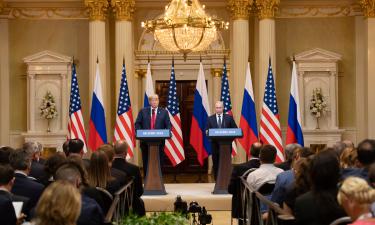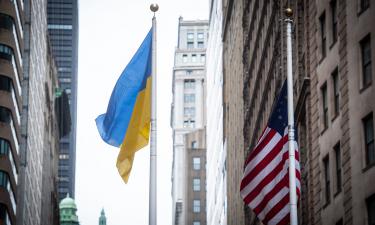Top U.S. diplomat meets Indian officials to discuss nuke deal
A landmark deal for the U.S. to share civilian nuclear technology with India was to top the agenda when a senior American diplomat meets Thursday with Indian officials. U.S. Undersecretary of State Nicholas Burns said he also expected to discuss Iran at the talks. India traditionally has strong ties with Iran, a fact that has clearly displeased American officials, who are pressing to have the Islamic republic sanctioned by the international community for its nuclear program.
Speaking Wednesday, Burns said Iran would become a pariah state over its nuclear activities and suggested countries such as India reconsider their relationship with Tehran. "All of us need to think about our relationship with Iran," he told reporters in Bombay, India's financial hub and the first stop on his South Asian tour, which comes more than a month ahead of an expected visit to the region by U.S. President George W. Bush.
India, which has few domestic sources of fuel, plans to build a 2,800-kilometer (1,750-mile) gas pipeline from Iran through Pakistan, a project that has raised concerns in Washington. The U.S. and other nations fear Iran will use its program to build nuclear weapons. Iran denies those charges.
Despite differences over Iran, Indian and U.S. officials have repeatedly said they would press ahead with a civilian nuclear cooperation deal. "We're confident that an agreement between the two governments can be worked out," Burns said in Bombay. "It's not easy, it's quite challenging and complex but it is an agreement that is in the interest of both our countries."
The deal was signed in July when Indian Prime Minister Manmohan Singh visited Washington, and marked a major policy shift for the United States, which imposed sanctions on India in 1998 after it conducted nuclear tests. The restrictions have since been lifted.
Under the deal, Washington is to share civilian nuclear technology and supply nuclear fuel to India in return for New Delhi separating its civilian and military nuclear programs and allowing international inspections of its atomic facilities. Burns called the separation "an enormously complex task and that is at the heart of the negotiations."
Some members of the U.S. Congress, which has to ratify the deal, have said they would wait before throwing their full support behind the deal until they knew all the details of how India would separate its civilian and military nuclear programs, reports the AP. N.U.
Subscribe to Pravda.Ru Telegram channel, Facebook, RSS!





